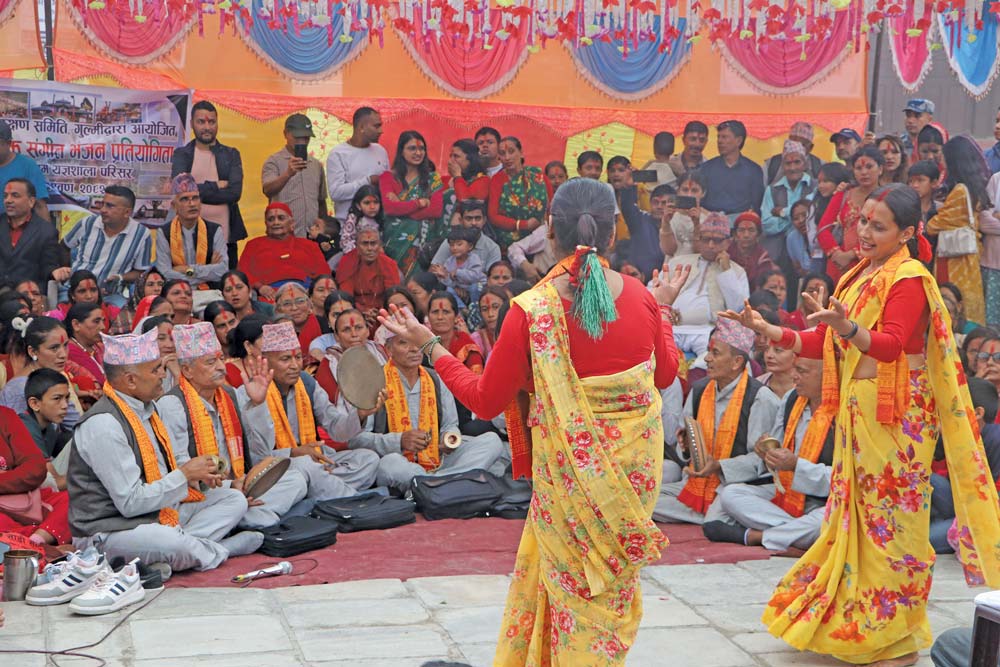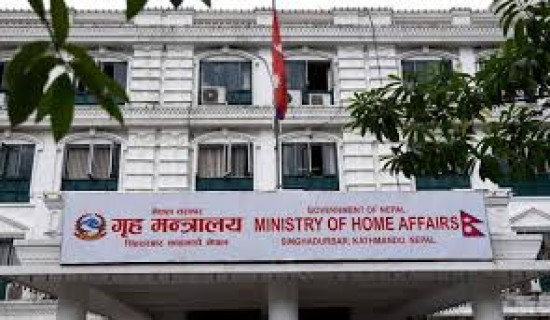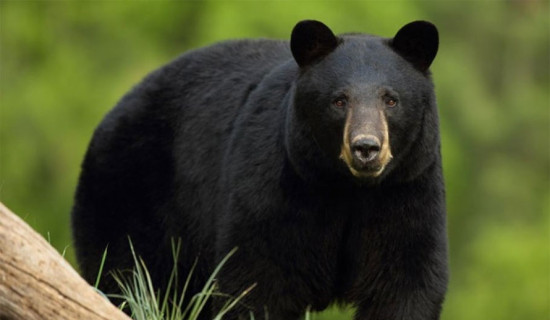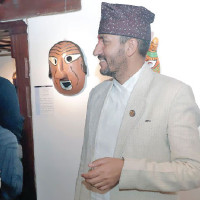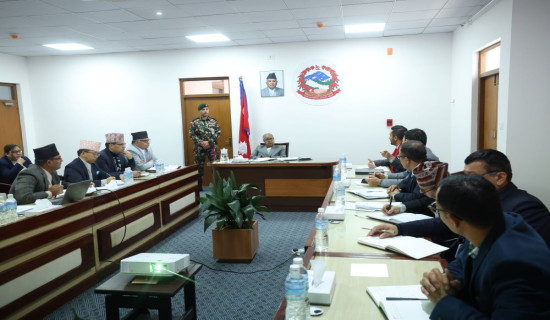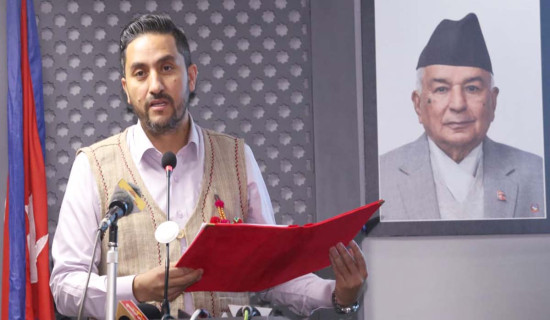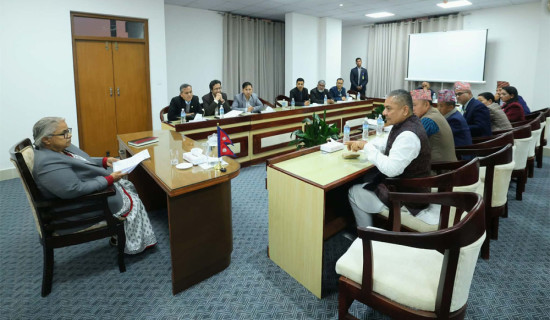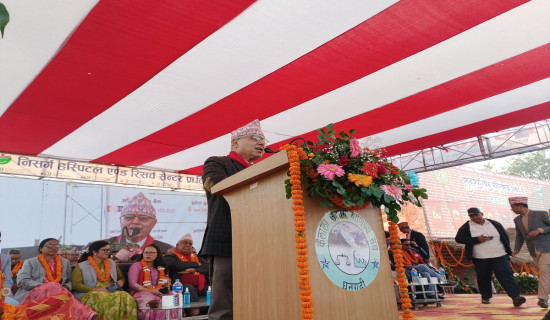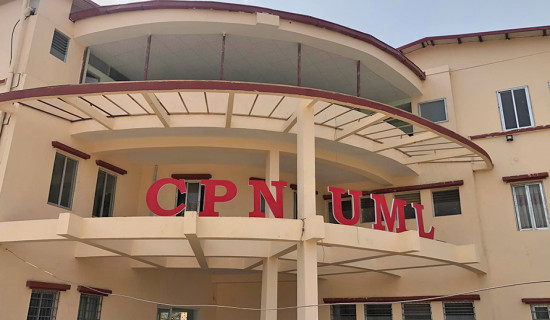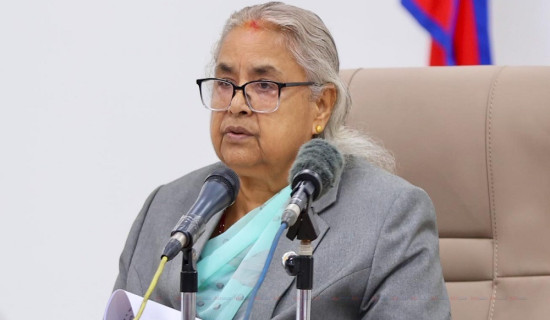- Tuesday, 9 December 2025
Hymn groups in Gulmi revive devotional songs
By Our Correspondent
Resunga, Aug. 5: Yub Raj Acharya, 59, from Resunga Municipality–14, Paralmi, Gulmi, began singing Lok Bhajan (devotional hymns) with his seniors when he was just 14.
He is now the leader of a hymn group. He has been spending the whole night by singing hymns throughout the night until dawn.
Acharya formed the Ratamata Bhajan Group, bringing together both elders and youths from the village. While devotional performances with enactments of divine stories often require many artists, he mentioned that in the village, usually only 10 to 12 people participate.
During the COVID-19 pandemic, many youths returned to the village, and Acharya began teaching them the gradually disappearing local Chutka bhajans (short, humorous or moral devotional songs) traditionally sung by older generations.
This initiative has continued to evolve till now.
He mentioned that the group earns between Rs. 15,000 to 100,000 per performance, with all earnings managed through the group. The Ratamata Bhajan Group is especially known for its Ganesh Aarti, Dashain Aarti, Ramayan, and Chutka Bhajans.
Similarly, Chiranjivi Paudel, a youth from Rurukshetra Rural Municipality–1, also started singing hymns from the age of eight or ten.
Since last year, he has registered the Rurukshetra Bhajan Group, which now performs on every Ekadashi (a sacred day in the lunar calendar). With support from the ward and municipal offices, the group has been able to acquire musical instruments and other materials.
The group, comprising members aged between 14 and 75 years, performs and sings about deities such as Hanuman, Ram-Laxman, Sage Shringi, Balasiddha Shiva, and Ruru Kanya.
Paudel emphasised that their aim is to pass down cultural values and traditions to future generations.
In Chandrakot Rural Municipality, 4, Shantipur, 56-year-old Shyamlal Gautam, who is also the assistant campus chief of Chandrakot Campus, leads a local bhajan group.
Having started singing and playing bhajans from a young age, following his father and grandfather, Gautam remains actively involved to this day.
According to Gautam, there has been a revival of interest in folk bhajans.
While modern times demand new music and styles of performance, the enthusiasm for traditional bhajans has grown.
He pointed out that bhajans were once considered exclusive to Brahmins due to caste-based mind-sets and that factors like the armed conflict and secularism made such traditions rare.
However, these days, villages are forming groups to preserve them.
He added, “Groups are being formed, materials are being collected, and participation in festivals and fairs is increasing.”
Since bhajans are typically sung at night, women often face challenges in participating, making these folk devotional songs more dependent on male performers, Gautam said.
Every year, the Resunga Conservation Committee organises a grand devotional music competition during the month of Shrawan.
This year too, 11 groups from three districts participated in the competition. Among them, Ratamata Bhajan Group won first place, Madane Bhajan Group came second, and Chhatrakot Bhajan Group took third prize.
Suresh Chandra Bhusal, chairperson of the Resunga Conservation Committee, said such programmes help attract more attention to Resunga and contribute to the preservation of arts and culture.
Khuma Khatri, former chairperson of the National Folk and Dohori Song Academy in Gulmi, said that the revival of folk bhajans in villages calls for local governments to support these groups through preservation, skill development, and income generation initiatives.

